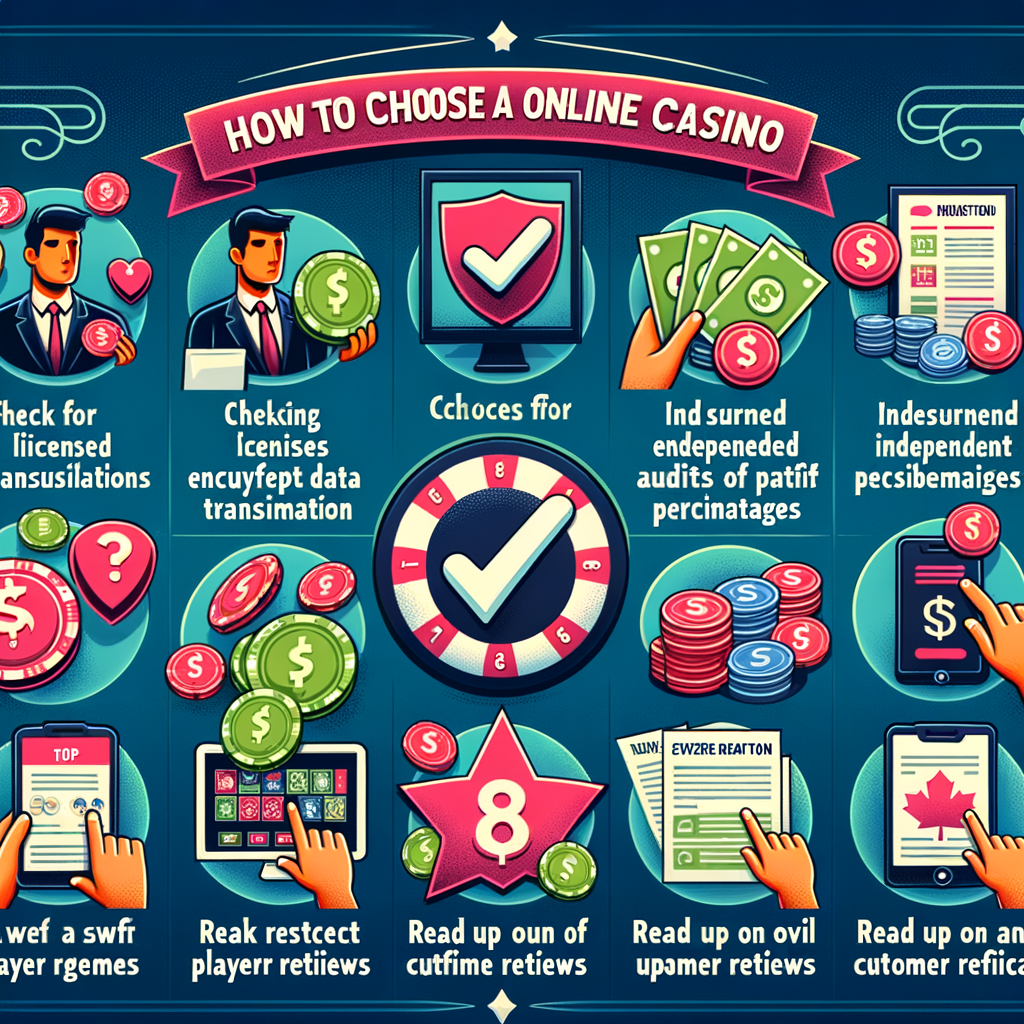Understanding the Legal Landscape of Online Gambling in the US
The legality of online gambling in the United States is a complex issue shaped by various federal and state laws. Historically, gambling has deep roots in American culture, but the rise of the internet introduced new challenges to regulation. In essence, the legality of online gambling varies significantly depending on the jurisdiction. Some states have embraced online gambling as a means to generate revenue, while others remain staunchly opposed, viewing it as a potential source of social issues.
To navigate this legal landscape, one must understand that the U.S. operates under a federalist system. This means that states have the power to create their own laws, leading to a diverse patchwork of regulations regarding online gambling. Consequently, players must be aware of their state’s specific regulations to determine whether they can legally engage in online gambling activities.
In recent years, there has been a noticeable trend toward legalization and regulation within several states. The advent of online poker and casino games has sparked significant interest from both consumers and government entities seeking new revenue streams. However, ambiguity remains, as certain federal laws can still impose restrictions on online gambling, adding to the confusion.
Overall, the legal landscape for online gambling in the U.S. is not only complex but also continually evolving. Legal opinions, state policies, and federal regulations are often in flux, necessitating that potential players stay informed about the latest developments to ensure compliance with the law.
Key Federal Laws Governing Online Gambling Activities
Two primary federal laws significantly influence online gambling activities in the U.S.: the Wire Act of 1961 and the Unlawful Internet Gambling Enforcement Act (UIGEA) of 2006. The Wire Act prohibits the transmission of bets or wagers on sports events or contests over the internet. Initially enacted to combat organized crime, the act has been interpreted in various ways, particularly regarding its applicability to non-sports gambling.
The UIGEA, on the other hand, specifically targets online gambling transactions. It does not outright ban online gambling but rather prohibits financial institutions from processing transactions related to unlawful internet gambling. This law has been pivotal in shaping the online gambling landscape, as it indirectly limits the activities of online gambling operators that do not comply with state regulations.
In contrast, federal laws like the Indian Gaming Regulatory Act of 1988 empower Native American tribes to conduct gaming activities on tribal lands, including online gambling platforms. This act further complicates the legal landscape, as it allows tribal entities to engage in online gambling under different rules than those applicable to state-regulated entities.
Together, these federal laws create a framework that states must navigate as they develop their own regulations. While federal laws provide boundaries, states retain significant authority in interpreting and enforcing these regulations, leading to the diverse legal environment witnessed today.
State-Specific Regulations: A Patchwork of Legalities
As of now, several states have legalized online gambling in various forms, including online poker and casino games. States like New Jersey, Pennsylvania, and Michigan are at the forefront of this movement, offering regulated online gambling platforms to their residents. These states have established comprehensive regulatory frameworks that address licensing, consumer protection, and responsible gambling measures.
Conversely, many states have yet to legalize online gambling, often citing concerns about addiction, crime, and economic implications. States like Utah and Hawaii maintain strict prohibitions against all forms of gambling, online or offline, reflecting a cultural stance against such activities. This stark contrast underscores the importance of understanding local laws before engaging in online gambling.
Interestingly, some states have opted for a more hybrid approach, allowing specific forms of online gambling while prohibiting others. For example, while sports betting may be legal in a state, online casino games might still be restricted. This creates an environment where potential players must carefully research their state's regulations to determine what activities are permissible.
The continued evolution of state regulations indicates that the online gambling landscape is far from static. As states observe the economic benefits of legalized online gambling, more are likely to consider legislation that could open new avenues for revenue and consumer choice.
The Role of the Wire Act and the UIGEA Explained
The Wire Act remains a cornerstone of online gambling legislation in the U.S. Its primary function is to prohibit interstate wagering on sports, which has led to extensive legal debates about its scope. In a notable 2011 opinion, the Department of Justice clarified that the Wire Act applies only to sports betting, effectively allowing states to regulate online poker and casino games without federal interference. This interpretation has facilitated the growth of regulated online gambling markets in states that choose to embrace it.
The UIGEA complements the Wire Act by targeting financial transactions rather than gambling activities directly. By restricting banks and payment processors from facilitating illegal online gambling transactions, the UIGEA creates significant barriers for unregulated operators. However, it does not define which forms of gambling are illegal, leaving states to establish their own laws to clarify what constitutes unlawful gambling.
Both the Wire Act and UIGEA have faced criticism for being outdated and not reflective of current technology and gambling practices. Advocates for reform argue that these laws hinder innovation and consumer protection in the rapidly evolving online gambling landscape. This has led to calls for legislative updates that could clarify and modernize the regulatory framework for online gambling.
As states continue to push for legalization and regulation of online gambling, the ongoing interpretations and potential amendments to these federal laws will play a crucial role in shaping the future of online gambling in the U.S. The evolving legal context necessitates that stakeholders remain vigilant and proactive in addressing these complex legal challenges.
Recent Developments and Trends in Online Gambling Legislation
In recent years, several states have enacted laws to permit online gambling, signaling a shift in public opinion and legislative action. Following New Jersey's successful implementation of online gambling in 2013, other states have observed its economic benefits and have sought to replicate that success. Pennsylvania, Michigan, and West Virginia have all legalized online gambling, with many states considering similar measures.
Moreover, the legalization of sports betting following the Supreme Court's 2018 decision to strike down the Professional and Amateur Sports Protection Act (PASPA) has further fueled interest in online gambling. States that have legalized sports betting often include provisions for online wagering, creating lucrative markets that attract both players and operators.
Technological advancements are also driving changes in online gambling legislation. The rise of mobile gaming applications and live dealer platforms has prompted regulators to adapt existing frameworks to accommodate these innovations. As consumer preferences shift toward more mobile-friendly options, lawmakers are increasingly tasked with ensuring that regulations are flexible enough to keep pace with these developments.
Finally, public health initiatives and responsible gambling measures are gaining traction alongside the expansion of online gambling. States are beginning to recognize the importance of consumer protection and responsible gaming practices, which may lead to enhanced regulatory oversight and compliance measures in the future.
| State | Online Casino Legal | Online Poker Legal | Sports Betting Legal |
|---|---|---|---|
| New Jersey | Yes | Yes | Yes |
| Pennsylvania | Yes | Yes | Yes |
| Michigan | Yes | Yes | Yes |
| Nevada | Yes | Yes | Yes |
| New York | No | No | Yes |
| Utah | No | No | No |
| Hawaii | No | No | No |
Responsible Gambling Practices and Legal Compliance Measures
As online gambling becomes increasingly popular, the necessity for responsible gambling practices has come to the forefront. Many states that have legalized online gambling require operators to implement measures designed to protect consumers. This includes age verification processes, self-exclusion options, and resources for problem gambling. These measures are crucial in fostering a safe gambling environment and minimizing the risks associated with gambling.
In addition, online gambling platforms are often required to educate players about responsible gambling. This includes providing information on the odds of games, potential risks, and where to seek help if gambling becomes problematic. Many states have mandated that operators include links to organizations that provide assistance and counseling for individuals struggling with gambling addiction.
Legal compliance is another vital aspect of online gambling regulation. States typically require operators to obtain licenses and adhere to specific regulations that govern their operations. This includes regular audits, monitoring for fraudulent activities, and ensuring fair play. Failure to comply with these regulations can result in fines, suspension, or revocation of licenses, emphasizing the importance of accountability within the industry.
Ultimately, the combination of responsible gambling practices and stringent legal compliance measures aims to create a balanced approach to online gambling. By promoting awareness and implementing safeguards, both regulators and operators can contribute to a healthy gambling environment that protects consumers and maintains the integrity of the industry.
Q&A Section
Q: Is online gambling legal in the U.S.?
A: The legality of online gambling varies by state. Some states have legalized it, while others prohibit it entirely.
Q: What federal laws affect online gambling?
A: Key federal laws include the Wire Act, which prohibits interstate sports betting, and the UIGEA, which restricts financial transactions related to illegal online gambling.
Q: Can I gamble online if my state prohibits it?
A: Engaging in online gambling in states where it is prohibited may lead to legal consequences. It’s essential to adhere to state laws.
Q: What measures are in place for responsible gambling?
A: Many states require online gambling operators to implement responsible gambling measures, such as age verification and self-exclusion options, and provide resources for problem gambling.
Q: How do I know if an online gambling site is legal?
A: Always check if the site is licensed in your state and complies with local regulations. Look for information on responsible gambling practices and regulatory oversight.



